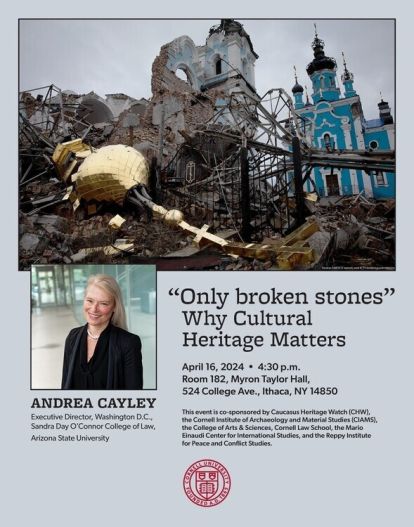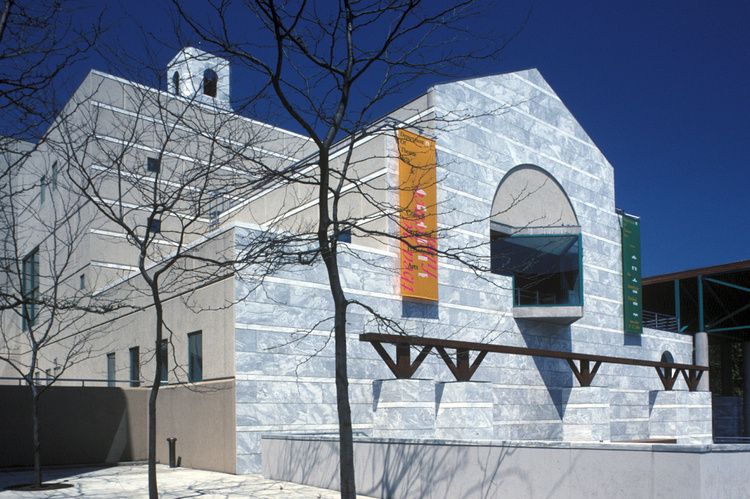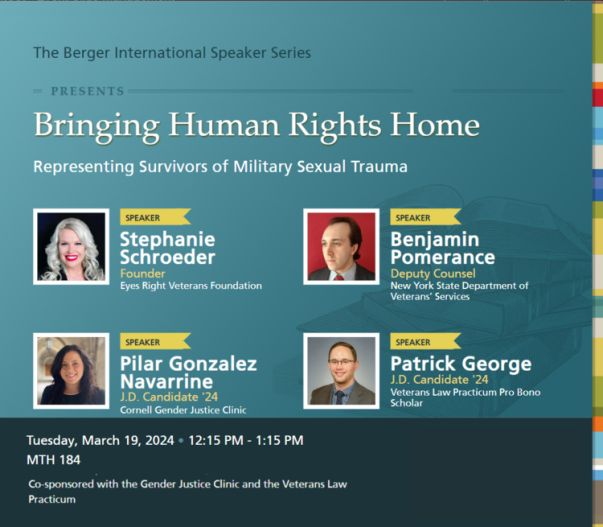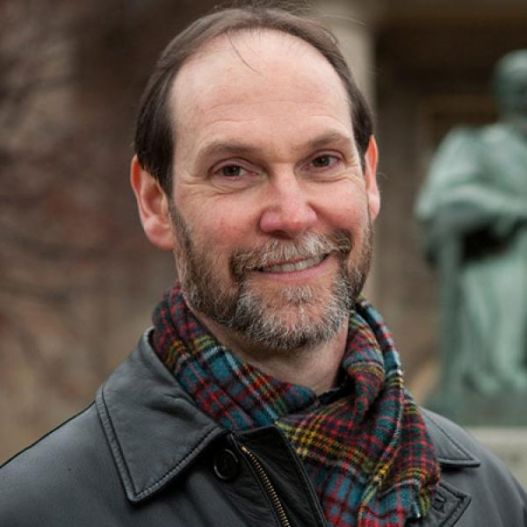Reppy Institute for Peace and Conflict Studies
“Only broken stones” Why Cultural Heritage Matters

April 16, 2024
4:30 pm
Myron Taylor Hall, 182
Abstract
Andrea Cayley will discuss the importance of seeking accountability in international and national courts for the destruction of cultural heritage.When international prosecutors look to bring cases for the destruction of cultural heritage, they are faced with comments such as ‘how can you focus on buildings when so many people have died’ or as Prof. Cayley was told when working on the prosecution of Pavle Strugar for attacks on Dubrovnik, Croatia, a protected UNESCO world heritage site, these are “only broken stones.” In fact, the US Department of Defense has stated that the first indicator of a genocide risk is an attack on cultural heritage. Why is the destruction of cultural heritage an essential part of charge of crimes against humanity or genocide? What is the legal framework of prosecuting these crimes and what are the evidentiary challenges? What is the current situation in Ukraine and what is being done to prosecute these crimes?
About Andrea Cayley
Andrea Matačić Cayley, J.D. Ph.D., the Executive Director of the Sandra Day O’Connor College of Law’s Washington D.C. program, has 20 years of experience working as a war crimes prosecutor at the International Criminal Tribunal for the Former Yugoslavia and the Extraordinary Chambers in the Courts Cambodia. She worked with UNESCO to prepare the indictment and prosecution of the most significant case of cultural property destruction in Yugoslavia (Prosecutor v. Pavle Strugar IT-01-42-A) and worked on the prosecution of numerous Bosnian cases where the destruction of Bosnian Muslim heritage was found to be a crime against humanity. She has advised on universal jurisdiction cases brought against Liberian as well as Syrian and Ukrainian war criminals. She has been part of the NATO cultural property advisory since 2016 and is a coordinator of the Atrocity Crimes Advisory group for Ukraine, the official US/UK/EU response to war crimes occurring in Ukraine. She leads the cultural heritage advisory for ACA. In November 2023, Andrea co-founded the Heritage Warfare Consortium, a partnership between ASU, the University of Pennsylvania, and Copenhagen University. This consortium brings a multi-disciplinary approach to the protection of cultural heritage and to accountability for cultural destruction. Andrea holds a BA from Columbia University, an MA in Slavic Studies from the University of Zagreb, Croatia, a JD from Temple University, and a PhD in International Law from Leiden University.
This event is co-sponsored by Caucasus Heritage Watch (CHW), the Cornell Institute of Archaeology and Material Studies (CIAMS), the College of Arts & Sciences, Cornell Law School, the Mario Einaudi Center for International Studies, and the Reppy Institute for Peace and Conflict Studies.
Additional Information
Program
Einaudi Center for International Studies
Reppy Institute for Peace and Conflict Studies
Screening of "Israelism" & discussion with the filmmaker

April 13, 2024
6:00 pm
Schwartz Center for Performing Arts, Film Forum
Cornell's Jewish Voice for Peace will be screening the film Israelism followed by a discussion with filmmaker Erin Axelman.
Additional Information
Program
Reppy Institute for Peace and Conflict Studies
Panel on Transnational Repression

April 25, 2024
4:30 pm
Biotechnology Building, G10
Governments engage in transnational repression when they reach across borders to silence dissidents living abroad. Tactics for transnational repression include assassinations, abductions, threats, and direct action against dissidents’ families and friends living within the repressive government’s territory.
This panel will focus on this global phenomenon and its local consequences for students and faculty members at Cornell, U.S. campuses more broadly, and other communities around the world. It will include the voices of dissidents affected by transnational repression as well as scholars and experts working in the field.
This is a panel discussion following the April 24 documentary In Search of My Sister screening. The film chronicles Rushan Abbas's relentless pursuit of truth and justice.
About the Panelists
Rachel Denber, Deputy Director of the Europe and Central Asia Division, specializes in countries of the former Soviet Union. Previously, Denber directed Human Rights Watch's Moscow office and did field research and advocacy in Russia, Georgia, Armenia, Azerbaijan, Kazakhstan, Uzbekistan, Estonia, Ukraine, Kyrgyzstan and Tajikistan. She has authored reports on various human rights issues throughout the region. Denber earned a bachelor's degree in international relations from Rutgers University and a master's in political science from Columbia University, where she studied at the Harriman Institute. She speaks Russian and French.
Firoozeh Kashani-Sabet, Walter H. Annenberg Professor of History, Firoozeh Kashani-Sabet is a prominent scholar of Iranian and Middle Eastern history. Her research addresses issues of national and cultural formation and gender concerns in Iran, as well as historical relations between the U.S., Iran, and the Islamic world. She is the author of highly influential works, including Frontier Fictions: Shaping the Iranian Nation, 1804-1946, which analyzed land and border disputes between Iran and its neighboring countries. These debates were pivotal to national development and cultural production and have significantly informed the territorial disputes in the region today. Conceiving Citizens: Women and the Politics of Motherhood in Iran, a wide-ranging study of the politics of health, reproduction and maternalism in Iran from the mid-19th century to the modern-day Islamic Republic.
Rushan Abbas, founder and executive director of Campaign for Uyghurs. Rushan Abbas’s activism started in the mid-1980s as a student at Xinjiang University, co-organizing pro-democracy demonstrations in Urumchi in 1985 and 1988. Since she arrived in the United States in 1989, Ms. Abbas has been an ardent campaigner for the human rights of the Uyghur people. Ms. Abbas is the founder and executive director of Campaign for Uyghurs (CFU) and became one of the most prominent Uyghur voices in international activism for Uyghurs following her sister’s detainment by the Chinese government in 2018. Ms. Abbas has spearheaded numerous campaigns, including the “One Voice One Step” movement, which culminated in a simultaneous demonstration in 14 countries and 18 cities on March 15, 2018, to protest China’s detention of millions of Uyghurs in concentration camps.
Sean Roberts is an Associate Professor in the Practice of International Affairs and Director of the International Development Studies (IDS) MA program at The George Washington University’s Elliott School of International Affairs. He received his MA in Visual Anthropology (2001) and his PhD in Cultural Anthropology (2003) from the University of Southern California. While completing his Ph.D. and following graduation, he worked for 7 years for the United States Agency for International Development in Kazakhstan and Kyrgyzstan, managing democracy, governance, and human rights programs in the five Central Asian Republics. He also taught for two years as a Post-Doctoral Fellow at Georgetown University’s Center for Europe, Eurasian, and Russian Studies before coming to the Elliott School in 2008. Academically, he has written extensively on the Uyghur people of China and Central Asia, about whom he wrote his dissertation, and his 2020 book The War on the Uyghurs (Princeton University Press).
About the Moderator
Rebecca Slayton, Director of the Reppy Institute for Peace and Conflict Studies, is an associate professor of science and technology studies in the College of Arts and Sciences. Her research and teaching examine the relationships among risk, governance, and expertise, focusing on international security and cooperation since World War II. Her first book, Arguments that Count: Physics, Computing, and Missile Defense, 1949-2012 (MIT Press, 2013), shows how the rise of a new field of expertise in computing reshaped public policies and perceptions about the risks of missile defense in the United States. Her second book project, Shadowing Cybersecurity, examines the emergence of cybersecurity expertise through the interplay of innovation and repair. Slayton is also working on a third project that examines tensions intrinsic to creating a “smart” electrical power grid—i.e., a more sustainable, reliable, and secure grid.
Host
Judith Reppy Institute for Peace and Conflict Studies
Additional Information
Program
Einaudi Center for International Studies
Reppy Institute for Peace and Conflict Studies
East Asia Program
Institute for African Development
South Asia Program
Institute for European Studies
Southeast Asia Program
Will the United States ban TikTok?

Sarah Kreps, PACS
Sarah Kreps, professor of government, joins Inside Story to discuss the potential TikTok ban in the U.S.
Additional Information
Berger International Speaker Series with Stephanie Schroeder – Bringing Human Rights Home: Representing Survivors of Military Sexual Trauma

March 19, 2024
12:15 pm
Myron Taylor Hall, MTH 184
This panel event will consider how domestic and international human rights advocacy can be used to support survivors of military sexual trauma (MST) and contribute to meaningful systemic change. Stephanie Schroeder, founder of the Eyes Right Veterans Foundation, will speak about her experiences in the U.S. Marines Corps and as a petitioner in a case before the Inter-American Commission on Human Rights that argues that the U.S. has failed adequately to prevent and respond to military sexual violence. Benjamin Pomerance, Deputy Counsel of the New York State Department of Veterans’ Services, will address the human rights implications of military sexual trauma for service members and Veterans. Pilar Narvarrine Gonzalez, JD Candidate ‘24, will discuss the work of the Cornell Gender Justice Clinic in supporting MST survivors through international and regional human rights litigation and advocacy, and Patrick George, JD Candidate ‘24, will discuss the work of the Veterans Law Practicum in supporting MST survivors through legal representation in seeking military discharge upgrades.
Trigger Warning: This panel discussion will include mentions and possibly descriptions of sexual violence
Additional Information
Program
Reppy Institute for Peace and Conflict Studies
Matthew Evangelista publishes "A Nuclear Umbrella for Ukraine?" in the forthcoming issue of the journal International Security.

Matthew Evangelista, Government, and Reppy Institute for Peace and Conflict Studies Program (PACS) Steering Committee Member publishes.
Additional Information
Women in AI: Sarah Kreps, Professor of Government at Cornell

Sarah Kreps, PACS
TechCrunch highlights Sarah Kreps, professor of government, and her contributions to the AI revolution.
Additional Information
House Panel Unanimously Advances Bipartisan Bill that Could Ban TikTok

Sarah Kreps, PACS
“I’m just not confident that this will actually side-step the free speech concerns that have been raised with previous attempts to ban TikTok,” says Sarah Kreps, professor of government.
Additional Information
Preventing Nuclear Weapons Proliferation

March 28, 2024
12:00 pm
Uris Hall, G08
Diplomacy through Sanctions and Incentives
Although nuclear dangers have increased among the nine states that currently possess nuclear weapons, the proliferation of nuclear weapons to other states so far has been relatively contained. States are adhering to the 1970 Nuclear Nonproliferation Treaty. The global nonproliferation regime has effectively combined the threat of sanctions for violations with incentives for compliance. The offer to ease sanctions has been an effective inducement in several cases of negotiated nonproliferation. What are the lessons of these experiences for taming nuclear dangers today?
David Cortright, visiting scholar, Reppy Institute and Emeritus, University of Notre Dame, will discuss the chapter “Incentivizing Nuclear Nonproliferation: Theory, Policy and Experience” by David Cortright and Thomas Biersteker for a forthcoming volume edited by Peter Wallensteen and Armend Bikaj of the Alva Myrdal Center for Nuclear Disarmament in Sweden.
About the Speaker
David Cortright is a visiting scholar with the Reppy Institute of Peace and Conflict Studies program and professor emeritus of the practice at the Keough School of Global Affairs at the University of Notre Dame. Previously, Cortright was the director of policy studies at the Keough School’s Kroc Institute for International Peace Studies and director of the institute’s Peace Accords Matrix project, the largest existing collection of implementation data on intrastate peace agreements.
Cortright has written widely about nonviolent social change, nuclear disarmament, and the use of multilateral sanctions and incentives as tools of international peacemaking. He has provided research services to the foreign ministries of Canada, Denmark, Germany, Japan, the Netherlands, Sweden, and Switzerland, and has served as consultant or advisor to agencies of the United Nations, the Carnegie Commission on Preventing Deadly Conflict, the International Peace Academy, and the John D. and Catherine T. MacArthur Foundation.
Host
Judith Reppy Institute for Peace and Conflict Studies
Additional Information
Program
Einaudi Center for International Studies
Reppy Institute for Peace and Conflict Studies
Getting to Climate Justice: A Global Approach

April 11, 2024
5:00 pm
Rockefeller Hall, Schwartz Auditorium, Room 201
Lund Critical Debate
Climate change has a disproportionate impact on the world’s most vulnerable populations, yet climate crises also impact people across the full spectrum of wealth and power. How do we understand these varied impacts and design climate policy to maximize human well-being and justice on a global level?
As climate change accelerates, we see the rise of violent conflict and humanitarian emergencies in some places but not others. In some places but not others, we see disruptions in food security and forced migration. And around the world, debates rage about access to energy, the need to profit from valuable natural resources, and pressures to reduce extraction and consumption.
This year’s Lund debate from the Mario Einaudi Center for International Studies explores how citizens and policymakers worldwide can act to increase justice in our shared climate crisis. The panel will discuss key issues surrounding societies, governments, business, and labor and ways to share responsibilities globally to reduce emissions and mitigate climate change.
How can we imagine new strategies for reshaping global trade and finance, national and transnational security policies, and environmental protections that go beyond political borders? Join climate journalist Kate Aronoff and climate security expert Joshua Busby (LBJ School of Public Affairs, University of Texas) for a conversation on our climate’s state of emergency and how governments can help.
***
Livestream for National and International Viewers
Can't join in person? Register to attend virtually at eCornell.
***
Panelists
Kate Aronoff is a Brooklyn-based staff writer at The New Republic, covering climate and energy politics, and a fellow at the Roosevelt Institute. She is the author of Overheated: How Capitalism Broke the Planet and How We Fight Back (2021) and the coauthor of A Planet to Win: Why We Need a Green New Deal (2019). Aronoff serves on Dissent magazine's editorial board and the advisory board of Jewish Currents.
Joshua Busby is professor of public affairs in the University of Texas at Austin’s Lyndon B. Johnson School of Public Affairs. His research focuses on climate change, global health, transnational advocacy movements, and U.S. foreign policy. Busby was principal investigator on two multimillion-dollar climate and security grants from the U.S. Department of Defense. He served as senior advisor for climate at the U.S. Department of Defense from 2021 to 2023. His newest book is States and Nature: The Effects of Climate Change on Security (2022).
Moderator
Rachel Bezner Kerr is director of Einaudi’s Institute for African Development and professor of global development in the College of Agriculture and Life Sciences. She served as coordinating lead author for the United Nations’ Intergovernmental Panel on Climate Change sixth assessment report chapter on climate change impacts and adaptation of food systems.
***
About the Debate
The Lund Critical Debate is a signature event of the Mario Einaudi Center for International Studies. Established in 2008, Einaudi's Lund debate series is made possible by the generosity of Judith Lund Biggs '57.
Additional Information
Program
Einaudi Center for International Studies
Reppy Institute for Peace and Conflict Studies
East Asia Program
Latin American and Caribbean Studies
Institute for African Development
Institute for European Studies
South Asia Program
